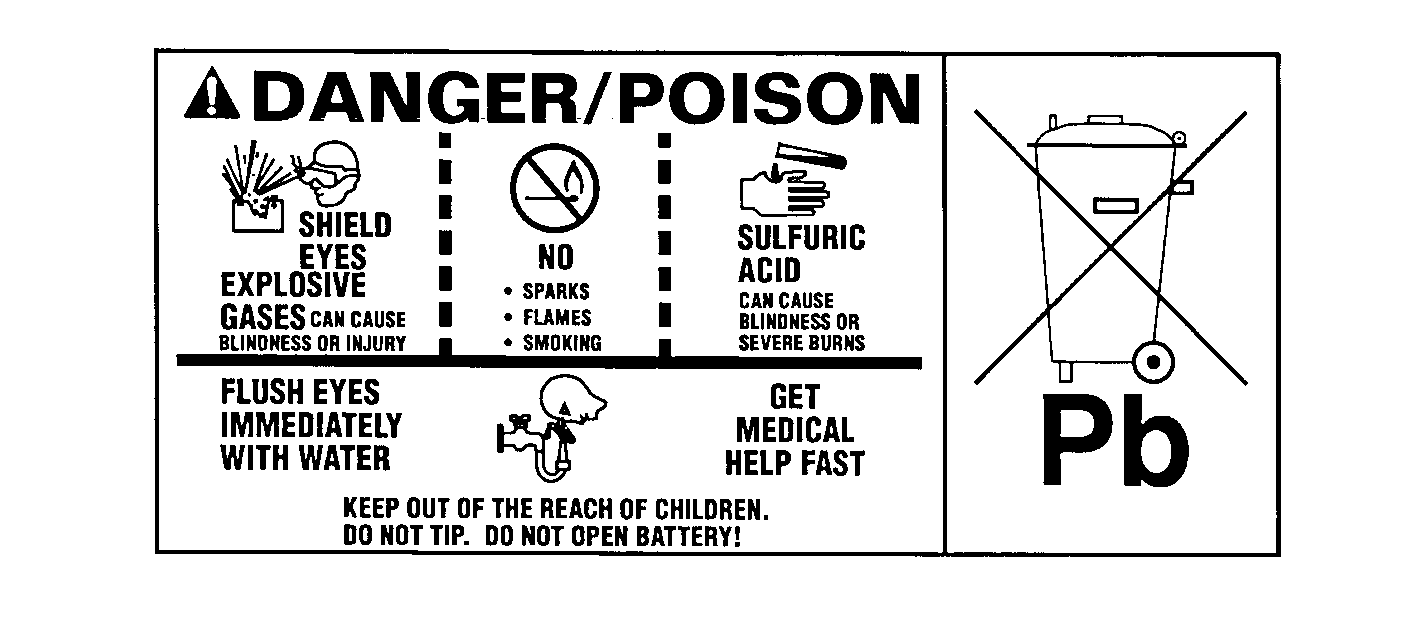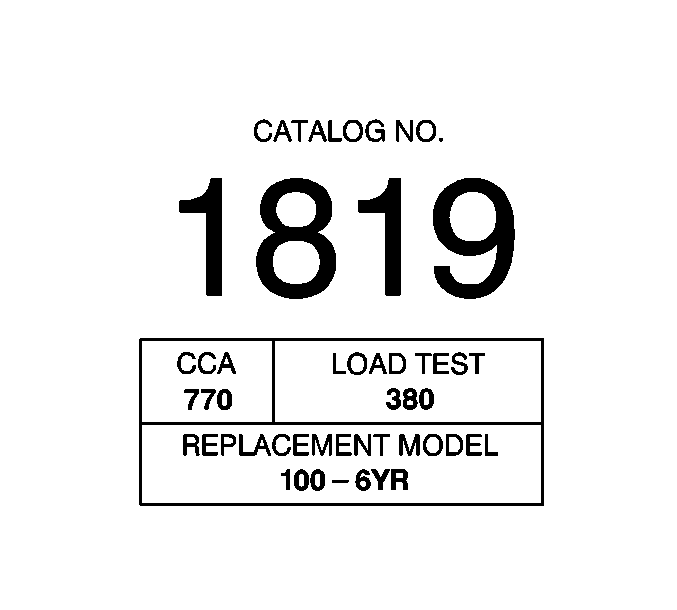
The maintenance free battery
is standard on all vehicles. The battery has a small acid overflow tank
attached at the top near the positive terminal. This tank should not
be removed. If the battery is being replaced, install a new tank on the
new battery and leave the old tank on the battery being scrapped. The
battery is completely sealed except for two small vent holes in the sides.
The vent holes allows the small amount of gas produced in the battery
to escape.
The battery has three functions as a major source of energy:
| • | Alternate source of energy with generator overload. |
The battery specification label contains information about the following:
| • | The original equipment catalog number |
| • | The recommended replacement model number |

Battery Ratings
A battery has two ratings:
When a battery is replaced use a battery with similar ratings. Refer
to the battery specification label on the original battery or refer to
Battery Usage
.
Reserve Capacity
Reserve capacity is the time (in minutes) necessary to discharge a completely
charged battery to a terminal voltage of 10.5 volts under the following
conditions:
| • | A constant rate of 25 amperes. |
| • | A constant temperature of 27° C (80° F). |
Refer to
Battery Usage
for the
reserve capacity rating of the original equipment battery.
Cold Cranking Amperage
The cold cranking amperage is an indication of the ability of the battery
to crank the engine at cold temperatures. The cold cranking amperage is the
minimum amperage necessary to maintain 7.2 volts for 30 seconds at -18° C
(0° F). Refer to
Battery Usage
for the cold cranking amperage rating for this vehicle.


